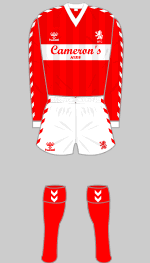Kevin will be representing us at an academic symposium at the University of London's central library, Senate House, which is said to have inspired George Orwell's Ministry of Truth in the novel 1984, on Friday June 3rd. The symposium focuses on the political, social, economic and cultural impact and legacy of the 1966 FIFA World Cup. Kevin will be talking about the financial and organisational findings from our forthcoming book; in particular how government support for the tournament had been crucial for the provincial venues, but also how the hoped for boost for Britain's tourist industries did not materialise as envisaged.
The symposium is free to attend and open to the public, starting at 9.30am. Other attractions during the day will include a keynote by Professor John Ewing Hudson, Professor of Sport and Cultural Studies and Director of the International Football Institute at the University of Central Lancashire, a discussion on the impact of England's victory on Anglo-German relations by Dr Christoph Wagner of De Montfort University, a paper on women's experiences of the 1966 Finals by Dr Stacey Pope of Durham University, and a roundtable discussion with Dr Kath Woodward from the Open University and the football historian and Guardian journalist David Goldblatt, who will also be making the closing remarks.
It should be a very engaging and thought provoking day - further details and registration is here!
Tuesday, 31 May 2016
Friday, 20 May 2016
Beer and the Boro - A Perfect Match!

If your university of library has access to Springerlink, you can easily download the digital edition of our new book chapter 'Beer and the Boro - A Perfect Match!'
"Although football clubs (FCs) as firms are relatively unsustainable from
a purely financial perspective, the club brands appear highly
sustainable in comparison with many other industries (Kuper and
Szymanski, 2012). While the ownership and the companies running the
clubs may change, the club brands themselves appear to be more stable
than in other industries where firms and brands go out of business,
relocate or diversify to a far greater extent (e.g. Hannah, 1997). This
may be because they are less vulnerable to competition — FCs have
historically been geographic, and while their catchment area may shrink
during less successful periods, it will not disappear entirely.
Furthermore, rival foreign clubs do not enter and supply soccer at lower
prices (although foreign investors may bid to take over the ownership)
and although English clubs as a whole could fall behind foreign
competitors and lose their best players, foreign clubs have their own
problems of finance and management (Kuper and Szymanski, 2012). Put
succinctly, society can keep unprofitable clubs going cheaply: bank
managers and tax collectors have historically appeared reluctant to
close century-old clubs -and so society swallowed the losses. Perhaps
clubs were and still are too small to fail. At the same time, the brand
loyalty of supporters means that no matter how lousy the product, a hard
core of customers will continue to purchase: “Soccer is more than just a
business. No one has their ashes scattered down the aisle at Tesco”
(Taylor, 1998, cited by Kuper and Szymanski, 2012, p.82)."
In the chapter, we discuss the relationship between the beer and brewing industry and football in the 1980s, through the case of Middlesbrough FC, a club which experienced severe financial challenges during the 1980s.
So what are you waiting for - have a read, put it on your reading lists, cite it in your research. You know what to do!
http://link.springer.com/chapter/10.1057%2F9781137466181_16
Thursday, 19 May 2016
Walking Football = good for your health

Whilst the professional game is fast-paced and physical, particularly here in the UK, participation in football can in fact be enjoyed by people of all ages and ability.
'Walking Football' is proposed as beneficial to mental health. This short BBC news article looks into the proposed benefits of 'walking football' for older and depressed men.
http://www.bbc.co.uk/news/video_and_audio/headlines/36329589
Tuesday, 17 May 2016
World's Worst Groundsmen?

(Image from http://newsimg.bbc.co.uk/media/images/40747000/gif/_40747002_footy_pitch_finale1.gif)
Creating the perfect football pitch requires several things, perhaps most obviously are good turf and the ability to produce precise markings.
Whilst a PhD in triganometry is not mandatory, the ability to paint straight lines onto the grass is pretty much a thresshold skill.
Except that is, in the seventh tier of Norwegian football, if British tabloid newspaper The Mirror is to be believed. Reporting on the wonky state of the white lines on the pitch for a recent fixture between Nordic minnows Julebygda and Riska 3, The Mirror writes "we're just amazed they managed to actually play a game through the inevitable fits of laughter..."
Have a look at the handiwork of groudsmen Quang Minh Ha and Nick Duy Do using the following weblink to see for yourself (photos included):
http://www.mirror.co.uk/sport/row-zed/worlds-worst-groundsmen-been-found-7983574#rlabs=1%20rt$sitewide%20p$10
Subscribe to:
Comments (Atom)

